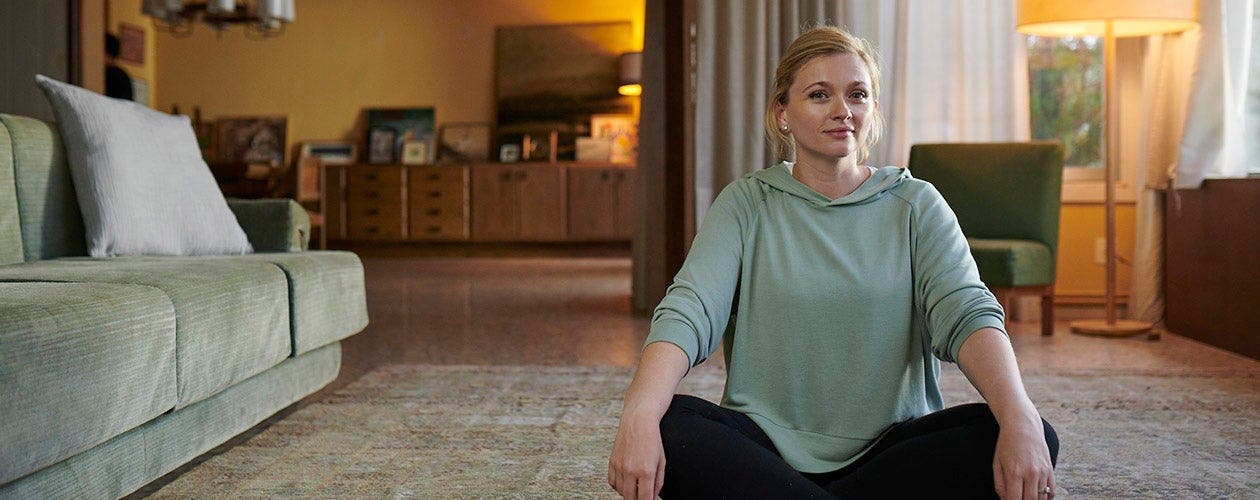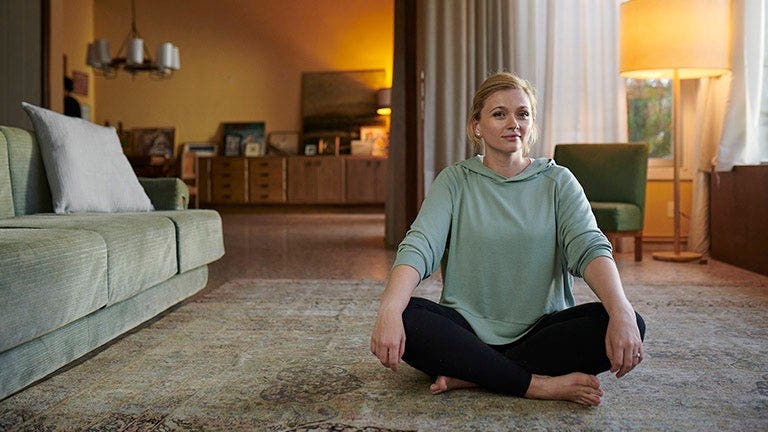5 things to do when you can't sleep


If you’re having trouble sleeping, you’re not alone. According to a UK Sleep Survey by Dreams, 63% of Brits are unhappy with the amount of sleep they get, with just 8% of respondents saying they always wake up feeling refreshed.
Sleep deprivation is no laughing matter; in fact, it can take a serious toll on your health and wellbeing. “For something that sounds so easy, sleep is quite difficult,” says American Academy of Sleep Medicine spokesperson Raj Dasgupta, MD, Assistant Professor at Keck School of Medicine at the University of Southern California.
“Sleep is like a puzzle and when you want to try to get good sleep, you need to find out which piece of the puzzle is missing and what piece of the puzzle really affects you the most.”
Good sleep starts during the day, and can be impacted by the foods you eat and what activities you do. But even if you’re doing everything you can do to prep yourself for a full night of sleep, you might still toss and turn. Fortunately, you don’t need to succumb to sleepless nights.
Try these sleep remedies the next time you’re lying in bed wide awake.
1. Get out of bed
It may seem counterproductive, but for some people, lying in bed trying to sleep will only make it harder to drift off, says Dr. Dasgupta.
“If you can’t fall asleep in the first 15 to 20 minutes, you should do things that are non-stimulating in dim light,” he says.
Whatever you choose to do, just make sure it doesn’t involve a screen. Blue light emitted from certain electronics, like cell phones and tablets, can suppress the secretion of melatonin, which is the hormone that tells your body it’s time to fall asleep.
2. Read a story
Have you ever noticed how time seems to fly by when you’re reading a favorite novel? Reading can also help you fall asleep, says W. Chris Winter, MD, author of The Sleep Solution: Why Your Sleep Is Broken and How to Fix It. Consider keeping a couple of really good books on your nightstand that you can reach for if you’re having trouble falling asleep, or if you wake up in the middle of the night.
3. Remind yourself it’s no big deal
Sleep is something that people think about too much, says Dr. Winter. Sure, it’s important for your health and wellbeing, but ruminating about how you can’t sleep isn’t going to get you anywhere. According to Winter, there isn’t much difference between getting really great rest and a good night’s sleep. And when people are able to remember that and just relax instead of getting into a tizzy over not falling asleep, they’re much better off.
“All of a sudden that pressure to fall asleep disappears,” he says. “And that’s when people sleep really well.”
4. Try visualization
Dr. Winter works with athletes to help them improve their sleep, and he’s found that visualising practicing their sport helps them fall asleep fast. Whether you imagine yourself perfecting your backhand or practicing your golf game, closing your eyes and placing yourself in that situation could help you fall asleep in minutes, says Dr. Winter.
Not only will you get some rest, but you might actually get better at your hobby. Interestingly, the brain can’t tell the difference between actually practicing something and just visualising in detail, he says.
5. Breathe deeply
There’s a reason yoga and meditation can make you feel so relaxed. When you focus on breathing, it’s hard to focus on anything else. Cutting out some of the noise in your mind is an important step toward falling asleep, says Dr. Winter.
Whether you choose a breathing technique that involves controlling or counting your breath, or you simply focus on your natural inhalation and exhalation, you’ll feel more relaxed and better able to fall asleep. Progressive relaxation, where you focus on relaxing one muscle of your body at a time while breathing deeply, has also been found to improve sleep quality, says Winter.
